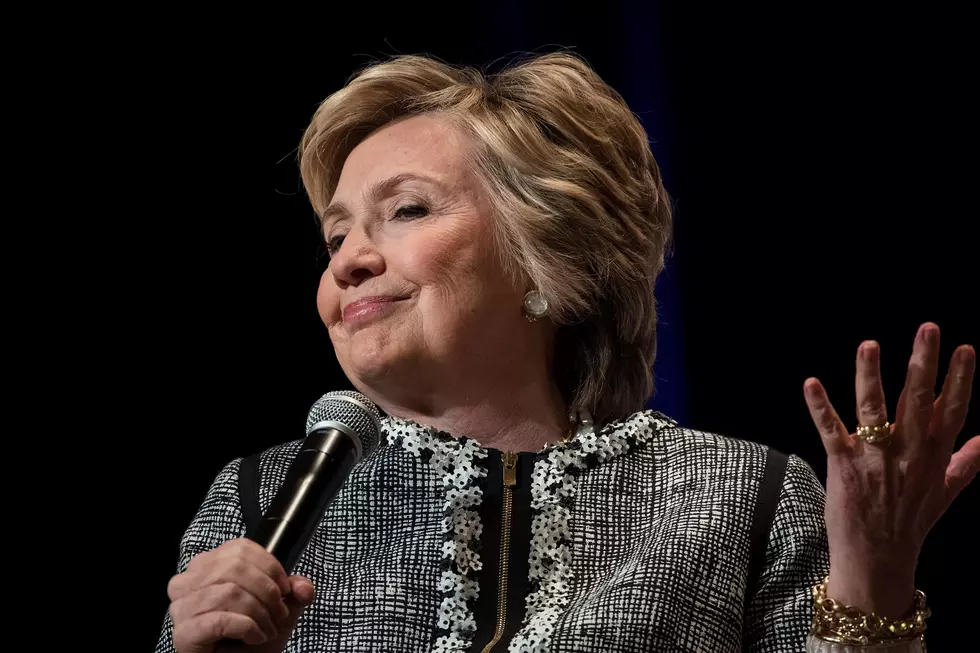
Hillary Clinton says NJ’s 14 electoral votes and all others should be abandoned
In a recent interview, Hillary Clinton may have made herself sound like a sore loser to some by proclaiming the nation's electoral vote system in electing a president should disappear in favor of election by popular vote. Of course had that been in play in 2016 she could be president today and not Donald Trump as she bested him by some 3 million votes.
If you're thinking this is only bad sportsmanship, you should know it's not the first time she's said it. Long before she ran for president she asserted the same after Al Gore lost to George W. Bush even though he had more Americans vote for him than for Bush. At the time a Senator-elect shortly after the 2000 election, Hillary Clinton said, "We are a very different country than we were 200 years ago. I believe strongly that in a democracy, we should respect the will of the people and to me, that means it's time to do away with the Electoral College and move to the popular election of our president."
So she's saying the same thing now as she said nearly 17 years ago. Is she right? This debate has come up before and today it is no closer to being won by either side than in the past.
The founding fathers enshrined our Electoral College in the Constitution in part because they thought it was a safeguard against uneducated, ill-informed voters. They gave the final decision to the electors because they felt these were people who would more likely have the information and intellectual depth to make the best decision. That doesn't seem very democratic though when you look at the world as it is today. Technology has homogenized America and made even the most rural residents fully able to access all information necessary on a candidate to make an informed decision. Besides, in such a controversial election as we just had if ever there were a time that electors would have voted their consciences enough to effect a different outcome it would have been then. So it seems a specious argument at best.
I think the better argument for maintaining the Electoral College is it forces a candidate to consider and campaign to all parts of America and not just the population clusters. If a candidate were only focused on the largest of population centers, much of middle America's concerns might be jettisoned. I think the Electoral College can make for a better balanced candidate, at least in theory.
How many times has it happened in our nation's history that the winner of the popular vote was the loser of the election? Five. Those five in chronological order are...
Andrew Jackson in 1824 who had more votes yet lost to John Quincy Adams. (Only in this case no candidate grabbed a necessary majority of the electoral vote and it was the only one in history decided by the House of Representatives under Twelfth Amendment provisions.)
Samuel Tilden in 1876 who had more votes yet lost to Rutherford Hayes.
Grover Cleveland in in 1886 who had more votes yet lost to Benjamin Harrison.
Al Gore in 2000 who had more votes yet lost to George W. Bush.
Hillary Clinton in 2016 who had more votes yet lost to Donald Trump.
Would it have been a sure thing in all five cases that a popular vote system would have resulted in a difference? No. Because candidates could have campaigned differently under such a system and so we will never know if outcomes would have be reversed.
A popular vote system might even make voters cast their votes differently. For example, here in a heavily Democratic state like New Jersey and all the polls leading up to the election indicating Hillary was going to take New Jersey's 14 electoral votes anyway, it made it easier for me to vote my conscience and choose Libertarian Gary Johnson since I couldn't decide who I disliked more between Trump or Hillary.
Let us know if you think Hillary Clinton is right. Take our poll below.
More from New Jersey 101.5
More From New Jersey 101.5 FM









